Day 1 • 4 October 2021
- Mr. Benda Gu, United Nations
- Dr. Ambika Bumb, Department of State’s Crisis Management and Strategy
- Dr. Xihong Lin, Harvard University
- Dr. Cecilia Mascolo, University of Cambridge
Day 2 • 5 October 2021
- Dr. Guang-Zhong Yang, Shanghai JiaoTong University
- Dr. Jean-Pierre Hubaux, EPFL
- Dr. Georgia Tourassi, Oak Ridge National Laboratory
- Dr. Anthony Chang, AIMed
Day 3 • 6 October 2021
- Dr. Po-Shen Loh, Carnegie Mellon University
- Dr. Dimitris Bertsimas, Massachusetts Institute of Technology
- Dr. Elizabeth Mynatt, Georgia Institute of Technology
Day 4 • 7 October 2021
- Dr. Nikos Paragios, University of Paris-Saclay
- Dr. Andrea Califano, Columbia University
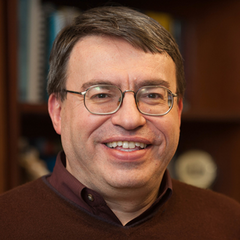 Dr. Dimitris Bertsimas, Boeing Leaders for Global Operations Professor of Management/ Professor, Operations Research/ Associate Dean for Business Analytics, Massachusetts Institute of Technology, USA
Dr. Dimitris Bertsimas, Boeing Leaders for Global Operations Professor of Management/ Professor, Operations Research/ Associate Dean for Business Analytics, Massachusetts Institute of Technology, USA
Talk Title: Data-Driven COVID-19 Vaccine Development for Janssen
Abstract: The COVID-19 pandemic has spurred extensive vaccine research worldwide. One crucial part of vaccine development is the Phase III clinical trial that tests the vaccine for its real-world efficacy. In this work, we enumerate the first successful implementation of utilizing epidemiological models to accelerate Phase III vaccine trials, working with the single-dose Janssen Ad26.CoV2-S vaccine to optimize its trial locations for high incidence rates. We introduce DELPHI, a novel, accurate, policy-driven epidemiological model that serves as the basis of our predictions. Then, we exhibit how to overcome the need for long-term predictions through the development of a scenario analysis toolkit using DELPHI. The DELPHI-driven site selection accelerated the trial by 8 weeks while reducing the necessary size from 60,000 to 45,000 individuals. The acceleration allowed millions of people earlier access to a life-saving vaccine and has already saved thousands of lives from COVID-19.
Bio-sketch: Dr. Dimitris Bertsimas is the Boeing Leaders for Global Operations Professor of Management, a Professor of Operations Research, and the Associate Dean for the Master of Business Analytics at MIT.
A faculty member since 1988, his research interests include optimization, stochastic systems, machine learning, and their application. In recent years, he has worked in robust optimization, statistics, healthcare, transportation, and finance. Bertsimas was a cofounder of Dynamic Ideas, LLC, which developed portfolio management tools for asset management. In 2002, the assets of Dynamic Ideas were sold to American Express. He is also the founder of Dynamic Ideas Press, a publisher of scientific books, the cofounder of Benefits Science, a company that designs health care plans for companies, of Dynamic Ideas Financial, a company that provides financial advice to customers, of Alpha Dynamics, an asset management company, P2 Analytics, an analytics consulting company, and of MyA health, a personalized health care advice company.
Bertsimas has coauthored more than 200 scientific papers and the following books: Introduction to Linear Optimization (with J. Tsitsiklis, Athena Scientific and Dynamic Ideas, 2008); Data, Models, and Decisions (with R. Freund, Dynamic Ideas, 2004); Optimization over Integers (with R. Weismantel, Dynamic Ideas, 2005); and The Analytics Edge (with A. O’Hair andW. Pulleyblank, Dynamic Ideas, 2016). He is former department editor of Optimization for Management Science and of Operations Research in Financial Engineering. Bertsimas has supervised 59 doctoral and 31 Master students. He is currently supervising 22 doctoral students. A member of the National Academy of Engineering and an INFORMS fellow, he has received numerous research awards, including the Harold Larnder Prize (2016), the Philip Morse Lecturship prize (2013), the William Pierskalla best paper award in health care (2013), best paper award in Trapsoration (2013), the Farkas Prize (2008), the Erlang Prize (1996), the SIAM Prize in Optimization (1996), the Bodossaki Prize (1998), and the Presidential Young Investigator Award (1991–1996). He has also received recognition for his educational contributions: The Jamieson prize (2013) and the Samuel M. Seegal prize (1999).
Bertsimas holds a BS in electrical engineering and computer science from the National Technical University of Athens, Greece, as well as an MS in operations research and a PhD in applied mathematics and operations research from MIT.
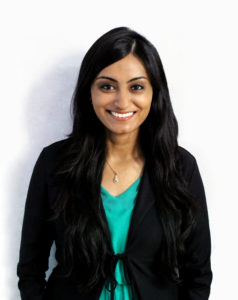 Dr. Ambika Bumb, Health, Science, and Technology Advisor for Department of State’s Crisis Management and Strategy, Office of the Secretary; Deputy Executive Director of the President’s Council of Advisors on Science and Technology
Dr. Ambika Bumb, Health, Science, and Technology Advisor for Department of State’s Crisis Management and Strategy, Office of the Secretary; Deputy Executive Director of the President’s Council of Advisors on Science and Technology
Talk Title: Technical Solutions for Pandemic Response
Bio-sketch: With a research background in biomedical engineering and experience in academia, industry, and government, Dr. Ambika Bumb has recently served as Health, Science, and Technology Advisor for Department of State’s Crisis Management and Strategy within the Office of the Secretary and as Deputy Executive Director of the President’s Council of Advisors on Science and Technology. The Senate unanimously passed the bipartisan Resolution 567 commending the efforts of her team in bringing home more than 100,000 citizens during the COVID-19 pandemic, the largest repatriation effort in U.S. history. She has formerly been Board Member for the International Biomedical Research Alliance, Strategic Advisor to the Energy Sciences Area of Berkeley Lab, and CEO of the biotech Bikanta. She graduated from Georgia Tech with a B.Sc. in Biomedical Engineering and a Minor in Economics, while being recognized with the Helen E. Grenga Outstanding Woman Engineer and E. Jo Baker Scholar Awards. She then obtained her doctorate from the National Institutes of Health (NIH)-Oxford Program while also on the Marshall Scholarship and followed that up with two post-doctoral fellowships at the National Cancer Institute and National Heart, Lung, and Blood Institute. The NIH recognized her work with the Orloff Technical Advance Award as a “platform” technology with implications that will broadly advance medicine on multiple fronts. Her work has led to many patents and the spinout of the biotech Bikanta. She has received much recognition for excellence in engineering and was named as one of 40 under 40 influential Bay Area business leaders. Dr. Bumb has also been involved in science outreach/education and national policy initiatives, such as the National Nanotech Initiative, Nano Task Force, guest writing for Techcrunch, and Cancer Moonshot Initiative.
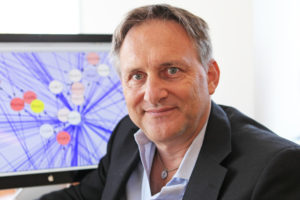 Dr. Andrea Califano, Clyde and Helen Wu Professor of Chemical and Systems Biology, Departments of Systems Biology, Biochemistry & Molecular Biophysics, Biomedical Informatics, and Medicine, Columbia University, USA
Dr. Andrea Califano, Clyde and Helen Wu Professor of Chemical and Systems Biology, Departments of Systems Biology, Biochemistry & Molecular Biophysics, Biomedical Informatics, and Medicine, Columbia University, USA
Talk Title: Network-based Identification and Pharmacological Targeting of Host Cell Master Regulators Induced by SARS-CoV-2 Infection
Abstract: Precise characterization and targeting of host cell transcriptional machinery hijacked by SARS-CoV-2 remains challenging. To identify therapeutically targetable mechanisms that are critical for SARS-CoV-2 infection, here we elucidated the Master Regulator (MR) proteins representing mechanistic determinants of the gene expression signature induced by SARS-CoV-2. The analysis revealed coordinated inactivation of MR-proteins linked to regulatory programs potentiating efficiency of viral replication (detrimental host MR-signature) and activation of MR-proteins governing innate immune response programs (beneficial MR-signature). To identify MR-inverting compounds capable of rescuing activity of inactivated host MR-proteins, without adversely affecting the beneficial MR-signature, we developed the ViroTreat algorithm. Overall, >80% of drugs predicted to be effective by this methodology induced a significant reduction of SARS-CoV-2 infection, without affecting cell viability. ViroTreat is fully generalizable and can be extended to identify drugs targeting the host cell-based MR signatures induced by virtually any pathogen.
Bio-sketch: Andrea Califano is the Clyde and Helen Wu Professor of Chemical and Systems Biology at Columbia University Irving Medical Center, the Founding Chair of the Department of Systems Biology, and Director of the JP Sulzberger Columbia Genome Center. He also holds appointments in the Departments of Biochemistry & Molecular Biophysics, Biomedical Informatics, and Medicine. He was originally trained as a physicist and has applied physics-based approaches, including extensive use of information theory principles, to the reverse engineering and interrogation of gene regulatory networks to systematically and efficiently identify key tumor checkpoint modules, whose aberrant activity is necessary for tumor viability. This has resulted in several clinical trials, including a very innovative N-of-1 study for precision cancer medicine. Dr. Califano has received several awards and recognitions, including the NCI Outstanding Investigator Award; Fellow of the AAAS, and of the NY Academy of Medicine and Academy of Science; and Member of the National Academy of Medicine. He is also the Co-founder of DarwinHealth Inc.
 Dr. Anthony Chang, Chief Intelligence and Innovation Officer (CIIO) and Medical Director of the Heart Failure Program at Children’s Hospital of Orange County, AIMed Founder, USA
Dr. Anthony Chang, Chief Intelligence and Innovation Officer (CIIO) and Medical Director of the Heart Failure Program at Children’s Hospital of Orange County, AIMed Founder, USA
Talk Title: Artificial Intelligence and the COVID-19 Pandemic: Successes and Failures with Lessons for Our Future
Abstract: The current paradigm of artificial intelligence has reached and influenced clinical medicine and healthcare, especially medical image interpretation and decision support. While these domains have seen gains from artificial intelligence with machine learning and deep learning, other areas have seen more substantive dividends during this pandemic. These contributions of artificial intelligence have been made in drug design, drug repurposing, and vaccine development as well as protein structure determination from genomic sequencing.
A combined dyad of public/global health and data science/artificial intelligence will be needed to overcome our viral overlords. The future developments of artificial intelligence and related and emerging technologies such as blockchain, natural language processing, and transformers can further advance strategies against the pandemic and other crises in healthcare.
Bio-sketch: Dr. Chang attended Johns Hopkins University for his B.A. in molecular biology prior to entering Georgetown University School of Medicine for his M.D. He then completed his pediatric residency at Children’s Hospital National Medical Center, and his pediatric cardiology fellowship at the Children’s Hospital of Philadelphia. He later accepted a position as attending cardiologist in the cardiovascular intensive care unit of Boston Children’s Hospital and as an assistant professor at Harvard Medical School. He has been the medical director of several pediatric cardiac intensive care programs (including Children’s Hospital of Los Angeles, Miami Children’s Hospital, and Texas Children’s Hospital). He served as the medical director of the Heart Institute at Children’s Hospital of Orange County.
He is currently the Chief Intelligence and Innovation Officer (CIIO) and Medical Director of the Heart Failure Program at Children’s Hospital of Orange County, and has been named a Physician of Excellence by the Orange County Medical Association and Top Cardiologist, Top Doctor for many years, as well as one of the nation’s Top Innovators in Healthcare.
Dr. Chang completed a Masters in Business Administration (MBA) in Health Care Administration at the University of Miami School of Business and graduated with the McCaw Award of Academic Excellence. He also completed a Masters in Public Health (MPH) in Health Care Policy at the Jonathan Fielding School of Public Health of the University of California, Los Angeles, at which he later taught Global Health. Finally, he graduated with his Masters of Science (MS) in Biomedical Data Science with a subarea focus in artificial intelligence from Stanford School of Medicine and has completed a certification on artificial Intelligence from MIT. He is a computer scientist-in-residence and a member of the Dean’s Scientific Council at Chapman University.
He has helped to build a successful cardiology practice as a startup company and was able to complete a deal on Wall Street. He is known for several innovations in pediatric cardiac care, including introducing the cardiac drug milrinone and co-designing (with Dr. Michael DeBakey). He is a committee member of the National Institute of Health pediatric grant review committee, and the editor of several textbooks in pediatric cardiology, including Pediatric Cardiac Intensive Care, Heart Failure in Children and Young Adults, and Pediatric Cardiology Board Review.
Dr. Chang is the founder of the Pediatric Cardiac Intensive Care Society (PCICS). He is also the founder of the Asia-Pacific Pediatric Cardiac Society (APPCS) and the founder and medical director of the Medical Intelligence and Innovation Institute (MI3). He is the organizing chair for the biennial Pediatrics2040: Emerging Trends and Future Innovations meeting as well as the founder and director of the Medical Intelligence and Innovation Summer Internship Program. He has organized a pediatric innovation leadership group, the international Society for Pediatric Innovation (iSPI).
He intends to build a clinician-computer scientist interface to enhance all aspects of data science and AI in health and medicine. The Chicago Tribune refers to him as “Dr. A.I.” and he has given a TEDx talk. He has published review papers and has completed a book project—a book series with Elsevier: Intelligence-Based Medicine: Principles and Applications of Artificial Intelligence in Clinical Medicine and Health Care, and is the editor-in-chief of the journal of the same title.
Dr. Chang is the founder and organizing chair of many AI in Medicine meetings in the U.S. and abroad and started a group for clinicians with a special focus on data science and artificial intelligence. In addition, he serves as the dean of the nascent American Board of Artificial Intelligence in Medicine (ABAIM) that will have education and certification of AI in clinical medicine and health care as its mission. Finally, Dr. Chang serves as the leader of the Orange County Chapter for the Society of Physician Entrepreneurs (SoPE).
*Click here to learn more about Dr. Anthony Chang and view his extended bio.
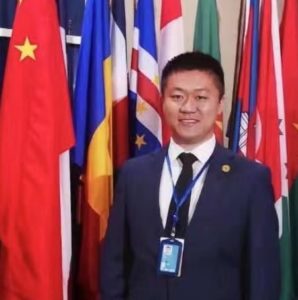 Mr. Benda Gu, Economic Affairs Officer, Executive Office of the United Nations Secretary General/ Senior Member, United Nations Multi-agency Task-team on Financing for the Development in the Era of COVD-19 and Beyond/ Senior Member, Office of the United Nations Special Envoy on Financing the 2030 Agenda for Sustainable Development/ Former member, Advisory Team, United Nations High-Level Panel on International Financial Integrity for Achieving the 2030 Agenda, USA
Mr. Benda Gu, Economic Affairs Officer, Executive Office of the United Nations Secretary General/ Senior Member, United Nations Multi-agency Task-team on Financing for the Development in the Era of COVD-19 and Beyond/ Senior Member, Office of the United Nations Special Envoy on Financing the 2030 Agenda for Sustainable Development/ Former member, Advisory Team, United Nations High-Level Panel on International Financial Integrity for Achieving the 2030 Agenda, USA
Talk Title: The Multidimensional Impact of the Pandemic and the Role of Data in the Global Response to the Crisis
Abstract: The COVID-19 pandemic is more than a global health crisis; it is also an unprecedented social-economic, humanitarian, and human rights crisis, affecting all aspects of the 17 Sustainable Development Goals and leading to a profound shared distress in the international community. The United Nations system has stepped up the global health response and established instruments to alleviate the social-economic impact from the outset, in support of its member states and partnership with other international organizations. The data has played an important role to support the UN’s work in the fight against the pandemic at the national, regional, and international levels, with much ongoing work and best practices from various UN entities around the world. It is possible to explore the linkage between cutting-edge technologies in Biomedical and Health Informatics with the urgent need for policy responses to the multidimensional consequences of this global challenge.
Bio-sketch: Benda Gu is the Economic Affairs Officer in the Executive Office of the United Nations Secretary-General. His main responsibilities include monitoring economic developments and analyzing economic prospects and policies, formulating proposals for development strategies for presentation to inter-governmental negotiations, and others. He takes multiple senior roles in the UN-coordinated framework among multiple agencies for the responses to the COVID-19, as well as the recovery and rebuild at the regional and national levels beyond the pandemic. Prior to the current position, he worked in the United Nations Department of Economic and Social Affairs on sustainable development policies.
 Dr. Jean-Pierre Hubaux, Professor and Head of Data Security Lab, School of Computer and Communication Sciences, EPFL, Switzerland
Dr. Jean-Pierre Hubaux, Professor and Head of Data Security Lab, School of Computer and Communication Sciences, EPFL, Switzerland
Title: Toward a Secure International Federated Learning Infrastructure to Investigate COVID-19
Abstract: Global pandemics such as COVID-19 call for large and diverse healthcare datasets to study various risk factors, treatment options, and disease progression patterns. Despite the enormous efforts of many large data consortium initiatives, the scientific community still lacks a secure and privacy-preserving infrastructure to support auditable data sharing and facilitate automated and legally compliant federated analysis on an international scale. Yet, using real-world evidence in biomedical research, an indispensable complement to clinical trials requires access to large quantities of patient data that are typically held separately by multiple healthcare institutions. Centralizing those data for a study is often infeasible due to privacy and security concerns. Federated analytics is rapidly emerging as a solution for enabling joint analyses of distributed medical data across a group of institutions, without sharing patient-level data. However, existing approaches either provide only limited protection of patients’ privacy by requiring the institutions to share intermediate results, which can in turn leak sensitive patient-level information, or they sacrifice the accuracy of results by adding noise to the data to mitigate potential leakage.
In this talk, we will describe FAMHE, a novel federated analytics system that, based on multiparty homomorphic encryption (MHE), enables privacy-preserving analyses of distributed datasets by yielding highly accurate results without revealing any intermediate data. We demonstrate the applicability of FAMHE to essential biomedical analysis tasks, including Kaplan-Meier survival analysis in oncology and genome-wide association studies in medical genetics. Using our system, we accurately and efficiently reproduce two published centralized studies in a federated setting, enabling biomedical insights that are not possible from individual institutions alone. Our work represents a necessary key step towards overcoming the security and privacy hurdle in enabling multi-centric scientific collaborations. It is a fundamental building block to better understand and combat pandemics.
Bio-sketch: Jean-Pierre Hubaux is a full professor at EPFL and head of the Laboratory for Data Security. Through his research, he contributes to laying the foundations and developing the tools for protecting privacy in today’s hyper-connected world. Hubaux’s research is currently dedicated to issues of data sharing and protection in personalized healthcare. Formerly, he worked on privacy and security in mobile and pervasive networks, and on inter-personal privacy problems. His work in data protection in personalized healthcare led to the development of a system able to train and perform inference with neural networks on decentralized data-sets while preserving the privacy of the data and protecting the model. He has also led efforts to show that combining secure multi-party computation and homomorphic encryption makes partial results of federated learning anonymous in accordance to GDPR. Hubaux is the founder and academic director of the Center for Digital Trust (C4DT). He leads the Data Protection in Personalized Health (DPPH) project funded by the ETH Council and is a co-chair of the Data Security Work Stream of the Global Alliance for Genomics and Health (GA4GH). He is a Fellow of both IEEE (2008) and ACM (2010). He is among the most cited researchers in privacy protection and in information security.
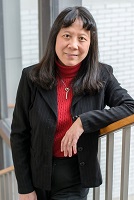 Dr. Xihong Lin, Professor of Department of Biostatistics and Department of Statistics, Harvard University, Broad Institute of MIT and Harvard, Member of US National Academy of Medicine, Member of the World Health Organization and the United Nations Department of Economic and Social Affairs, Member of the Technical Advisory Group on COVID-19 Mortality Assessment, USA
Dr. Xihong Lin, Professor of Department of Biostatistics and Department of Statistics, Harvard University, Broad Institute of MIT and Harvard, Member of US National Academy of Medicine, Member of the World Health Organization and the United Nations Department of Economic and Social Affairs, Member of the Technical Advisory Group on COVID-19 Mortality Assessment, USA
Talk Title: Learning from COVID-19 Data on Transmission, Health Outcomes, Interventions, and Vaccination
Abstract: COVID-19 is an emerging respiratory infectious disease that has become a pandemic. In this talk, I will first provide a historical overview of the epidemic in Wuhan by showing the analysis results of 32,000 lab-confirmed COVID-19 cases in Wuhan that estimates the transmission rates before and after public health interventions. I will next present the results of the estimated COVID-19 transmission rates, the proportion of unascertained cases, and the prevalence across the states of the US and other countries, how interventions help control transmission. I will also present the analysis results of >500,000 participants of the HowWeFeel project on health outcomes, behaviors, and emotions in the US during the pandemic, and discuss the factors that are associated with infection, behavior, vaccine hesitancy, and uptake. I will discuss real-world vaccine efficacy findings using electronic medical records and how they have changed over time.
Bio-sketch: Xihong Lin is Professor and Former Chair of Biostatistics, Coordinating Director of the Program in Quantitative Genomics of Harvard TH Chan School of Public Health, and Professor of Statistics at Harvard University. Dr. Lin’s research interests lie in the development and application of scalable statistical and computational methods for the analysis of massive genetic, epidemiological, and clinical data. She is an elected member of the US National Academy of Medicine. Dr. Lin received the 2002 Mortimer Spiegelman Award from the American Public Health Association, the 2006 Presidents’ Award, and FN David Award from the Committee of Presidents of Statistical Societies (COPSS). She is the PI of the Outstanding Investigator Award from the National Cancer Institute, and the contact PI of the Harvard Analysis Center of the Genome Sequencing Program of the National Human Genome Research Institute. She has been active in COVID-19 research. She is a corresponding senior author of the landmark JAMA and Nature papers on analysis of the Wuhan COVID-19 data on transmission, public health interventions, and epidemiological characteristics. In Spring 2020, Dr. Lin served on the State of Massachusetts COVID-19 Task Force and testified in the UK Parliament’s Committee of Science and Technology on COVID Responses. She serves on the World Health Organization (WHO) and the United Nations Department of Economic and Social Affairs (UN DESA), the Technical Advisory Group on COVID-19 Mortality Assessment.
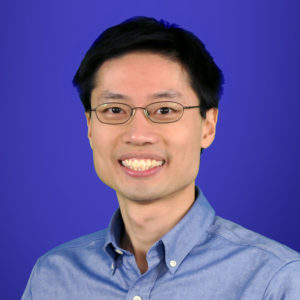 Dr. Po-Shen Loh, Professor of Mathematical Science, Carnegie Mellon University, National Coach of the USA International Mathematical Olympiad Team, USA
Dr. Po-Shen Loh, Professor of Mathematical Science, Carnegie Mellon University, National Coach of the USA International Mathematical Olympiad Team, USA
Talk Title: A New Approach for Fighting Pandemics, Combining Game Theory, Mobile Devices, and Network Theory
Abstract: We introduce a categorically new approach for pandemic control, which transforms selfish human behavior from a liability to an asset. Amidst a high-lethality pandemic, it could leverage individual survival instincts across the entire population, naturally incentivizing system-wide behavior that mitigates pandemic spread.
One of the central tools in pandemic control is contact tracing, which informs people after they have already been exposed to an infected person, and asks all of those people to remove themselves from society, to protect everyone else from themselves.
Informed by Game Theory, we reverse the incentives with a new infrastructure based on mobile devices which helps individuals directly reduce their own chance of infection (protecting themselves from everyone else). The core concept is to inform every participating user of their network-theoretic distance to each newly reported case, against the network of frequent close physical contacts.
This is fundamentally different from contact tracing because it does not seek to control individuals after they are exposed, but rather empowers not-yet-exposed individuals to take selfish action to avoid exposure in the first place. It is analogous to arming every individual with their personal pandemic network radar. This opportunity was only recently unlocked by the mass proliferation of connected mobile devices and opens a new category of intervention at the intersection of Game Theory, Technology, and Health.
Bio-sketch: Po-Shen Loh is a math professor at Carnegie Mellon University and the national coach of the USA International Mathematical Olympiad team. His research considers a variety of questions that lie at the intersection of combinatorics, network theory, probability, and computer science, and his academic work has been recognized by the USA Presidential Early Career Award for Scientists and Engineers. He also dabbles in social entrepreneurship, previously founding the free math and science education platform expii.com which sees 500,000 visitors each month, and he has featured in or co-created videos totaling 10 million YouTube views. Upon the outbreak of COVID, he turned his mathematical attention to create NOVID, the first app to introduce the fundamentally different “personal radar” paradigm for pandemic control.
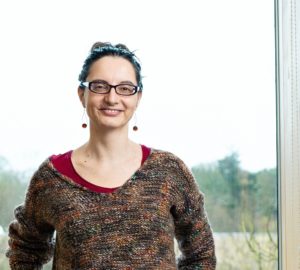 Dr. Cecilia Mascolo, Full Professor of Mobile Systems, Department of Computer Science and Technology, University of Cambridge, UK
Dr. Cecilia Mascolo, Full Professor of Mobile Systems, Department of Computer Science and Technology, University of Cambridge, UK
Talk Title: Respiratory Audio Signals and COVID-19: Challenges and Opportunities
Abstract: Audio signals generated by the human body (e.g., sighs, breathing, heart, digestion, vibration sounds) have routinely been used by clinicians as diagnostic or progression indicators for diseases and disease onset. However, until recently, such signals were usually collected through manual auscultation at scheduled visits. Research has now started to use digital technology to gather bodily sounds (e.g., from digital stethoscopes) for cardiovascular or respiratory examination, which could then be used for automatic analysis.
Some initial work shows promise in detecting diagnostic signals of COVID-19 from voice and coughs.
COVID-19 SOUNDS (Covid-sounds-19.org) is a project we initiated to collect and analyze respiratory sounds related to the COVID-19 disease. We have developed mobile apps which allow users to volunteer their breathing, coughs, and voice (while reading text on the screen) and answer questions about their medical history and symptoms (as well as if they tested positive for COVID-19). I will talk about our progress in the analysis of the data, the challenges it has brought and the opportunities it is opening.
Bio-sketch: Cecilia Mascolo is the mother of a teenage daughter but also a Full Professor of Mobile Systems in the Department of Computer Science and Technology, University of Cambridge, UK. She is co-director of the Centre for Mobile, Wearable System, and Augmented Intelligence. She is also a Fellow of Jesus College Cambridge and the recipient of an ERC Advanced Research Grant. Prior to joining Cambridge in 2008, she was a faculty member in the Department of Computer Science at University College London. She holds a Ph.D. from the University of Bologna. Her research interests are in mobile systems and machine learning for mobile health. She has published in a number of top-tier conferences and journals in the area and her investigator experience spans projects funded by Research Councils and industry. She has served as a steering, organizing, and program committee member of mobile and sensor systems, data science, and machine learning conferences. More details at www.cl.cam.ac.uk/users/cm542.
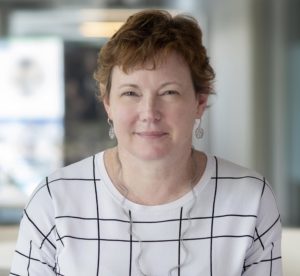 Dr. Elizabeth Mynatt, Regents’ and Distinguished Professor in the College of Computing, the Executive Director of Institute for People and Technology, Georgia Institute of Technology, USA
Dr. Elizabeth Mynatt, Regents’ and Distinguished Professor in the College of Computing, the Executive Director of Institute for People and Technology, Georgia Institute of Technology, USA
Talk Title: Combatting Health Disparities By Supporting Community-Led Covid Response for Underserved Populations
Abstract: Facing a once-in-a-century pandemic, closures and safe distancing orders swept much of the United States due to the COVID-19 pandemic. Activities that were previously conducted face-to-face, in education, healthcare, commerce, and more, were either deferred or re-imagined as communities determined how to respond to the pandemic. For the past year, we have focused our attention on vulnerable and underserved populations by inventing and informing services to minimize program interruptions, by developing strategies to reduce disparities in COVID-19 testing, treatment, and vaccine uptake, and by chronicling the lived experience of the pandemic in these communities. In this research, we have sought to understand the potential for health informatics to combat health disparities by empowering community-led approaches.
Bio-sketch: Dr. Elizabeth Mynatt is a Regents’ and Distinguished Professor in the College of Computing and the Executive Director of Georgia Tech’s Institute for People and Technology that pursues innovative research to promote healthy, productive, and fulfilling lives on a global scale. Over the past two decades, Mynatt’s research has focused on the role of ubiquitous computing in health, including creating the NCI-funded MyPath mobile application that provides breast cancer patients with personalized recommendations during their cancer journey. Mynatt co-leads the Emory-Georgia Tech program to empower people with mild cognitive impairment (MCI). She is also one of the principal researchers directing the NSF AI Institute for Collaborative Assistance and Responsive Interaction for Networked Groups (AI-CARING)and past director of the Aware Home Research Initiative; investigating the design of interactive intelligent systems, especially those that enable older adults to continue living independently as opposed to moving to an institutional care setting. Mynatt has been recognized as an ACM Fellow, a member of the SIGCHI Academy, and a Sloan and Kavli research fellow. She has published more than 100 scientific papers and chaired the CHI 2010 conference, the premier international conference in human-computer interaction. Prior to joining the Georgia Tech faculty in 1998, Mynatt was a member of the research staff at Xerox PARC.![]()
 Dr. Nikos Paragios, Professor of Mathematics at CentraleSupelec, University of Paris-Saclay, CEO/CSO of TheraPanacea, France
Dr. Nikos Paragios, Professor of Mathematics at CentraleSupelec, University of Paris-Saclay, CEO/CSO of TheraPanacea, France
Talk Title: AI-driven Quantification, Staging and Outcome Prediction of COVD-19 Pneumonia
Abstract: Improving screening, discovering therapies, developing a vaccine, and performing staging and prognosis are decisive steps in addressing the COVID-19 pandemic. Staging and prognosis are especially crucial for organizational anticipation (intensive-care bed availability, patient management planning) and accelerating drug development; through rapid, reproducible, and quantified response-to-treatment assessment. In this letter, we report on an artificial intelligence solution for performing automatic staging and prognosis based on imaging, clinical, comorbidities, and biological data. This approach relies on automatically computed tomography (CT)-based disease quantification using deep learning, robust data-driven identification of physiologically-inspired COVID19 holistic patient profiling, and strong, reproducible staging/outcome prediction with good generalization properties using an ensemble of consensus methods. Highly promising results on multiple independent external evaluation cohorts along with comparisons with expert human readers demonstrate the potentials of our approach. The developed solution offers perspectives for optimal patient management, given the shortage of intensive care beds and ventilators, along with means to assess patient response to treatment.
Bio-sketch: Nikos Paragios is a distinguished professor of Mathematics (on partial leave) at CentraleSupelec, the school of engineering of the University of Paris Saclay, and CEO/CSO of TheraPanacea. Prior to that he was senior fellow (2015-2020) at the Institut Universitaire de France, director (2011-2017) of the Center for Visual Computing at CentraleSupelec, scientific leader (2007-2017) at Inria, professor (2004-2005, 2011-2013) at the Ecole de Ponts ParisTech, and affiliated with Siemens Corporate Research (Princeton, NJ, 1999-2004) as a project manager, senior research scientist, and research scientist. N. Paragios was an adjunct professor at Rutgers (2002) and at New York University (2004) and a visiting professor at Yale (2007) and at the University of Houston (2009). Professor Paragios is a fellow of IEEE (class of 2011), has co-edited four books, published more than 300 papers in the most prestigious journals and conferences (DBLP server), and holds 30 international patents. His work has approx 25,000 citations according to Google Scholar and his H-number (03/2020) is 68. Professor Paragios is the Editor in Chief of the Computer Vision and Image Understanding Journal (CVIU) since 2013 and serves as a member of the editorial board for the Medical Image Analysis Journal (MedIA) while has served in the editorial board of numerous and prestigious international journals (IEEE T-PAMI, IJCV, IVC, MVA, JMIV, SIIMS…). Pr. Paragios received an IBM faculty award in 2014, a European Research Council excellence award in 2011 while in 2008 was the laureate of Greece’s (nationality or descent) highest honor (world-wide) for young academics and scientists, the Bodossaki Prize. In 2006, he was named one of the top 35 innovators worldwide innovators under the age of 35 from the MIT’s Technology Review. Professor Paragios is a member of the scientific council of Safran conglomerate.
 Dr. Georgia Tourassi, Director of the National Center of Computational Sciences and the Oak Ridge Leadership Computing Facility, Oak Ridge National Laboratory, 2020 DOE’s Secretary Honors Awardee for Contributions to the COVID-19 Insights Partnership Team and COVID-19 HPC Resource Team, USA
Dr. Georgia Tourassi, Director of the National Center of Computational Sciences and the Oak Ridge Leadership Computing Facility, Oak Ridge National Laboratory, 2020 DOE’s Secretary Honors Awardee for Contributions to the COVID-19 Insights Partnership Team and COVID-19 HPC Resource Team, USA
Talk Title: High Performance Computing and AI in the Fight Against COVID-19: Lessons Learned
Abstract: In this talk I will highlight innovations in computational infrastructure and several scientific advances enabled by supercomputing and AI via the COVID-19 High-Performance Computing consortium and the National Virtual Biotechnology Laboratory consortium to understand the virus, identify promising molecular therapeutics, and inform management of the pandemic response. High Performance Computing (HPC) has been the cornerstone for research advancement, scientific innovation, competitive advantage, and economic prosperity. The Department of Energy’s Leadership Computing Facilities have a long history of enabling researchers to expand the scale and scope of their research, solve complex problems in less time, and fill critical gaps in scientific knowledge across many disciplines such as materials science, earth sciences, astrophysics, biology, and engineering to name a few. In addition, supercomputing has proven to be an effective ally to our society by helping us address critical and pressing challenges, such as climate change, national emergencies, and most recently the COVID-19 pandemic.
Bio-sketch: Georgia (Gina) Tourassi is the Director of the National Center of Computational Sciences and the Oak Ridge Leadership Computing Facility at Oak Ridge National Laboratory. She joined ORNL in 2011 as the director of the Biomedical Sciences and Engineering Center after a long academic career in the department of radiology and the medical physics graduate program at Duke University Medical Center. In addition, she is an adjunct professor of radiology at Duke University and the University of Tennessee Graduate School of Medicine, joint UT-ORNL faculty of Mechanical, Aerospace, and Biomedical Engineering at the University of Tennessee at Knoxville and the Bredesen Center.
Dr. Tourassi’s research background and interests are in artificial intelligence, scalable data-driven biomedical discovery, high-performance computing, clinical decision support, and human-computer interaction. Her scholarly work includes more than 250 peer-reviewed journal articles, conference proceedings articles, book chapters, editorials, and conference abstracts, as well as 15 invention disclosures and patents. Her research work has been funded by NIH, DOE, VA, DOD, and various foundations. Dr. Tourassi is a member of several scientific societies with extensive service records, has chaired an international medical imaging conference, serves on the technical committees of biomedical informatics, AI, and scientific computing conferences and workshops, and has prepared educational material and refresher courses. She has been recognized as a leading expert in her fields of expertise by being appointed Charter member of NIH Study sections and being elected member of the FDA Advisory Committee and review panel on Computer-Aided Diagnosis Devices. She is elected Fellow of the American Institute of Medical and Biological Engineering (AIMBE), the American Association of Physicists in Medicine (AAPM), the International Society for Optics and Photonics (SPIE), and the American Association for the Advancement of Sciences (AAAS). She is also senior member of the Institute of Electrical and Electronics Engineers (IEEE) and the International Neural Network Society (INNS).
In the past few years Tourassi has been directly involved with the DOE-NCI and DOE-VA partnerships announced by Vice President Biden in 2016 on the deployment of exascale computing to enable precision medicine advances for cancer and the US Veterans. For her leadership in the Joint Design of Advanced Computing Solutions for Cancer initiative, she received the DOE Secretary’s Appreciation Award in 2016 and the HPCwire Readers’ and Editors’ Choice Award for “Best Use of AI” in 2017. In addition, in 2017 Dr. Tourassi received the ORNL Director’s Award for Outstanding Individual Accomplishment in Science and Technology and the UT-Battelle Distinguished Researcher Award. In 2020, Dr. Tourassi received the DOE’s Secretary Honors Award for her contributions to the COVID-19 Insights Partnership Team and to the COVID-19 HPC Resource Team.
Tourassi holds a B.S. in Physics from Aristotle University of Thessaloniki, Greece, and a Ph.D. in Biomedical Engineering from Duke University.
![]()
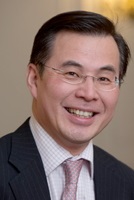 Dr. Guang-Zhong Yang, Professor and Founding Dean of the Institute of Medical Robotics at Shanghai Jiao Tong University, Founding Editor-in-Chief of Science Robotics, Fellow of Royal Society of Engineering, China
Dr. Guang-Zhong Yang, Professor and Founding Dean of the Institute of Medical Robotics at Shanghai Jiao Tong University, Founding Editor-in-Chief of Science Robotics, Fellow of Royal Society of Engineering, China
Talk Title: Robotics and COVID-19
Abstract: The COVID-19 pandemic has caught the world unprepared and there seems to be no clear ending for this pandemic. Could robots be an effective weapon for combating COVID-19? Already, we have seen robots being deployed for disinfection, delivering medications, food, measuring vital signs and assisting border controls. This talk reviews the fundamental requirements for robotics for infectious disease management and outlines how robotic technologies can be used in different scenarios, including disease prevention and monitoring, clinical care, laboratory automation, logistics, and maintenance of socio-economic activities of the general public. It also addresses some of the open technical challenges and ethical use of robots as we learn to co-live with the virus in the foreseeable future.
Bio-sketch: Professor Guang-Zhong Yang (CBE, FREng, FIEEE, FIET, FAIMBE, FIAMBE, FMICCAI, FCGI) is a chair professor and the founding dean of the Institute of Medical Robotics at Shanghai Jiao Tong University. He was the founder and director of the Hamlyn Centre for Robotic Surgery, Imperial College London, UK. Professor Yang’s main research interests are in medical imaging, sensing and robotics. He is a Fellow of the Royal Academy of Engineering, fellow of IEEE, IET, AIMBE, IAMBE, MICCAI, CGI and a recipient of the Royal Society Research Merit Award and listed in The Times Eureka ‘Top 100’ in British Science. Professor Yang is the founding editor of Science Robotics (http://robotics.sciencemag.org/) – a journal of the Science family dedicated to the latest advances in robotics and how it enables or underpins new scientific discoveries. He was awarded a CBE in the Queen’s 2017 New Year Honour for his contribution to biomedical engineering.
